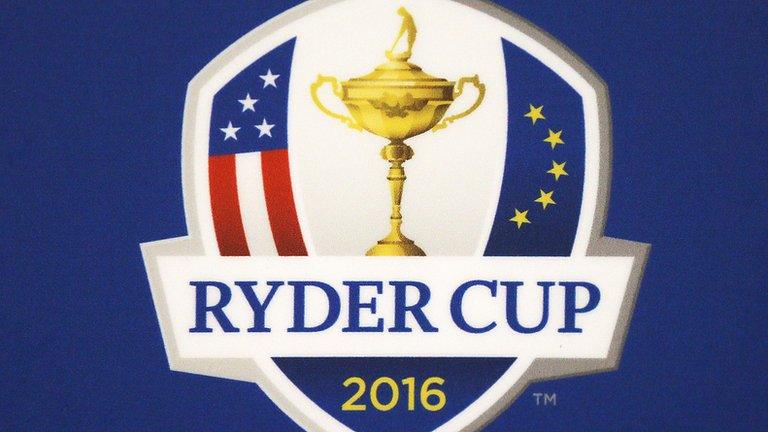Ryder Cup 2016: Where the US won - and Europe lost - the competition
- Published
- comments
Ryder Cup 2016: Catch up with the final day
Amid smiles and laughter, it took a popped champagne bottle to shut him up.
Two years earlier, Phil Mickelson had delivered a shocking and devastating critique of his captain and the American Ryder Cup set-up. The contrast in mood and sentiment this time around could not have been greater.
America's journey towards regaining the trophy after eight long years in European hands began with that fractious news conference immediately after Tom Watson's team suffered heavy defeat at Gleneagles.
In the immediate aftermath of the United States' 17-11 victory at Hazeltine, Mickelson joked: "The pressure started when some dumb ass opened his mouth two years ago in the media centre."
Back then, Mickelson was heavily criticised for insulting a golfing legend.
Phil Mickelson questions Tom Watson's captaincy
But the fallout helped create a more cohesive, collected and motivated team than those that had lost eight of the previous 10 Ryder Cups. Captained for the second time by Davis Love, the US were able to take full advantage against a relatively weak European line-up.
Darren Clarke's side were always going to be up against it, because this match coincided with a period of generational change. There were six first-timers in a team missing stalwarts such as Ian Poulter, Graeme McDowell and Luke Donald.
As we saw at Gleneagles in 2014, heavy defeats can spawn rancour and recrimination, but despite being comprehensively outplayed there was, quite rightly, none from the European side.
They were due a defeat, and the Americans were able to exploit home advantage; riding the wave of raucous support and making the most of a soft course set-up.
For Europe to have won, Clarke would have needed to gamble on giving his rookies more responsibility. He was a naturally cautious leader whose instincts pushed him towards making the most of the more experienced players in his team.
Few argued with his wildcard selections at the time they were made, though I always felt Lee Westwood would be playing under immense pressure having failed to qualify automatically.
In his 10th Ryder Cup, the Englishman did not add to his extraordinary tally of 23 points, which leaves him behind only Colin Montgomerie (23.5), Bernhard Langer (24) and Sir Nick Faldo (25) in the all-time European list.
Westwood's putting capitulation late in the Saturday afternoon fourballs proved a pivotal moment. It was sad to see from someone who has been at the heart of so much European success.
This felt as though it was one Ryder Cup too many for Westwood. Fellow wildcard Martin Kaymer was also disappointing, his lone point coming in a singles match against Matt Kuchar that came too late to affect the overall outcome.
Darren Clarke says captaining Europe was "an amazing experience"
With hindsight, Clarke should have kept together the irrepressible Spaniards Sergio Garcia and Rafa Cabrera Bello on Saturday afternoon.
But at the point he had to submit his pairings, they were four down to Jordan Spieth and Patrick Reed.
That is why Cabrera Bello was benched. However, he and Garcia were playing well despite the large deficit in a match they ultimately halved. Had Clarke kept the Spanish duo together, those pivotal Saturday fourballs might have maintained European momentum.
The Northern Irishman should also have made more use of Chris Wood, Matthew Fitzpatrick and Andy Sullivan.
Wood was outstanding in his one foursomes with Justin Rose, Fitzpatrick was given little chance to shine and Sullivan sat out until the singles after defeat with Rory McIlroy in Friday's opening foursomes.
Such sparing use of the English rookies reinforced the notion they needed to be protected. Yet look at the way Thomas Pieters responded to being asked to play all five matches. The Belgian wildcard collected four points, a record on a European debut.
Of course, it is easy to make these calls after the event and overall Clarke did a decent job as captain.
In the build-up to the match, his dignified and decisive response to the ill-timed and ill-advised article on US fan behaviour, external by Danny Willett's brother Peter helped limit the damage.
There were a few Americans in the crowd who lived down to PJ Willett's assessment - several "basement-dwelling irritants" among the huge galleries that swarmed over Hazeltine.
But the insults that flew in the direction of European stars such as McIlroy, Garcia and, of course, PJ's Masters-winning sibling were largely isolated incidents.
For the most part, the home support was passionately raucous and generated the most intense atmosphere I have experienced on a golf course. When you have such large numbers of people whipped into such a frenzy, there will always be a few who will take it too far.
It goes with the territory, but to have golf played and showcased in such an extraordinarily passionate environment can only be good for the growth of the game.
Ryder Cup 2016: Best shots of singles
America's triumph will heighten the sense of anticipation for the next Ryder Cup, in Paris in 2018.
Many of Europe's team in Minnesota will retain their places and will be stronger for this experience. The next skipper - probably Thomas Bjorn - is unlikely to have nearly as many debutants.
The US, meanwhile, have set their own blueprint for success.
"We need to build on this," said Mickelson. "Otherwise, it's all for nought. We created a very solid foundation this year.
"With the input that Davis Love had, and each vice-captain - Tom Lehman, Jim Furyk, Steve Stricker, Tiger Woods and Bubba Watson; all brought integral parts to the success of this foundation, and it's important we build on that.
"For us to go to Europe and try to win the cup is a whole different feat.
"That's going to require a whole different level of play, of solidarity, of fortitude and we are going to have to build on this if we want to try to retain the cup."
And with that, his captain popped the champagne bottle and Mickelson shut up, a happy man.
- Published3 October 2016
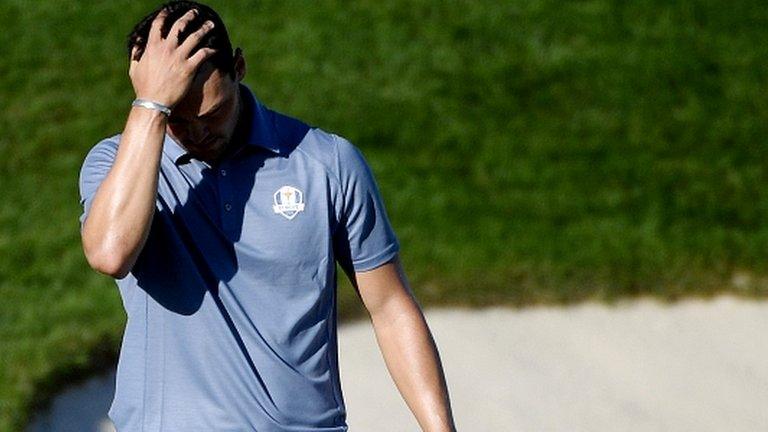
- Published3 October 2016
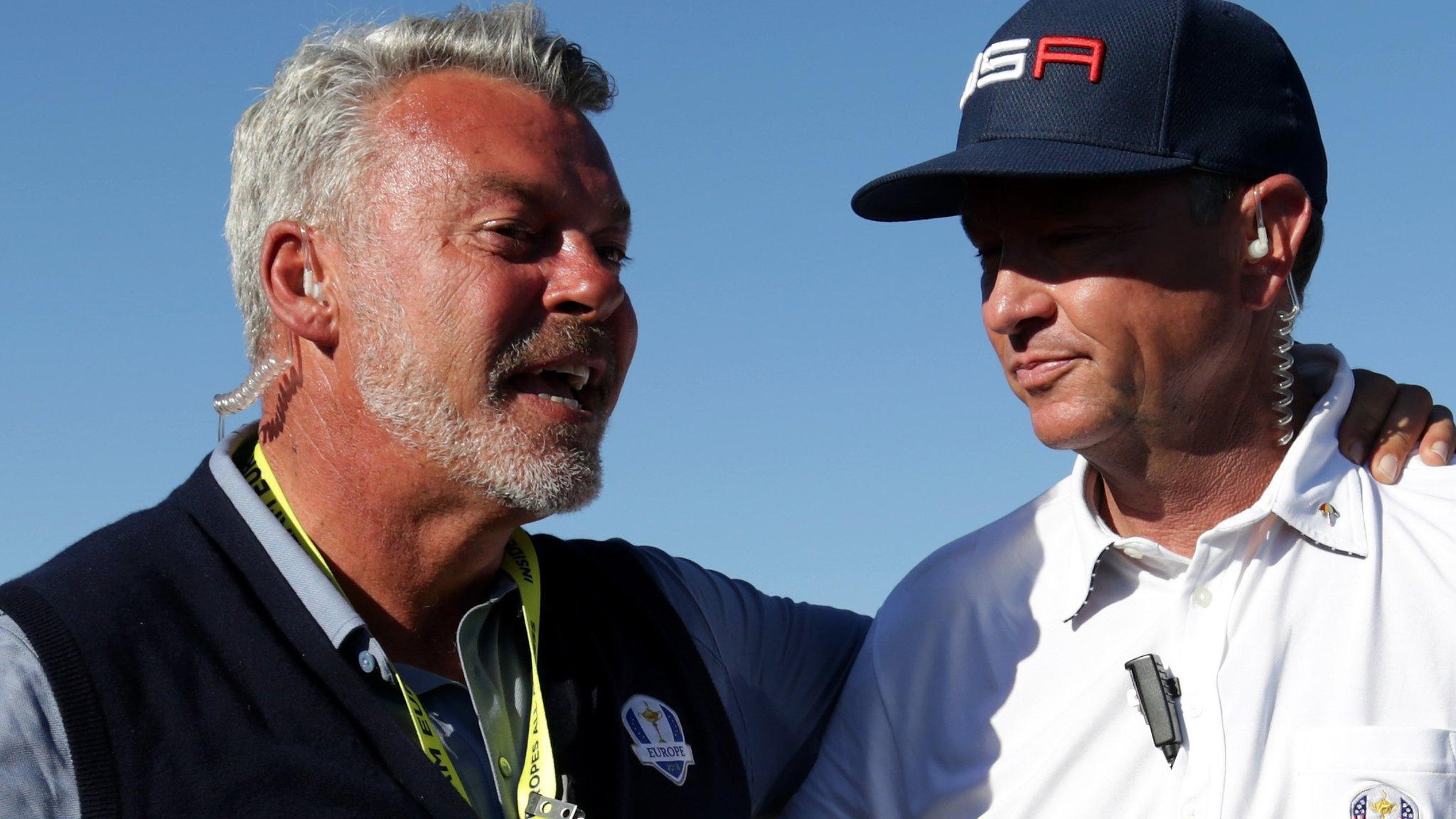
- Published2 October 2016
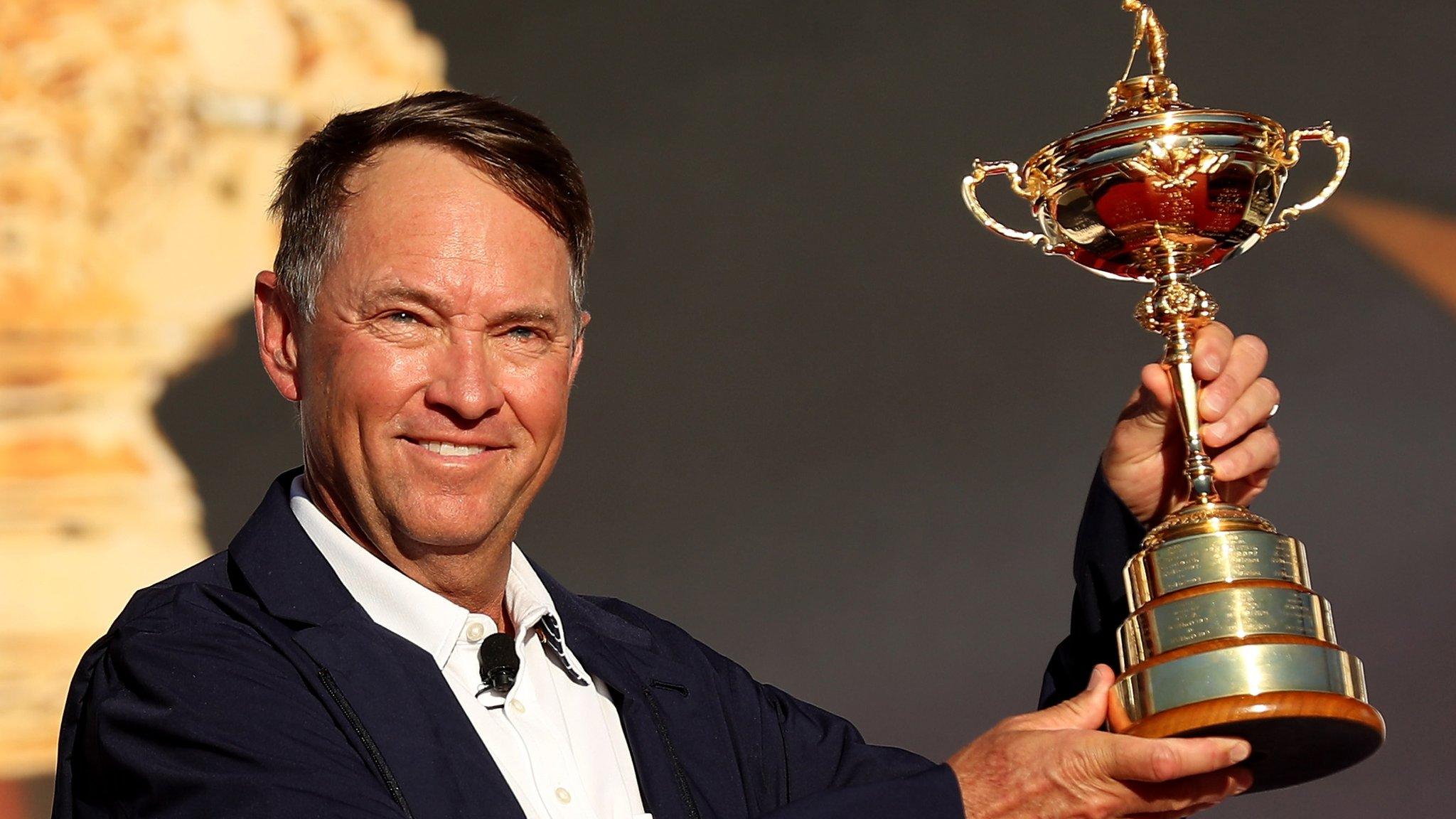
- Published2 October 2016
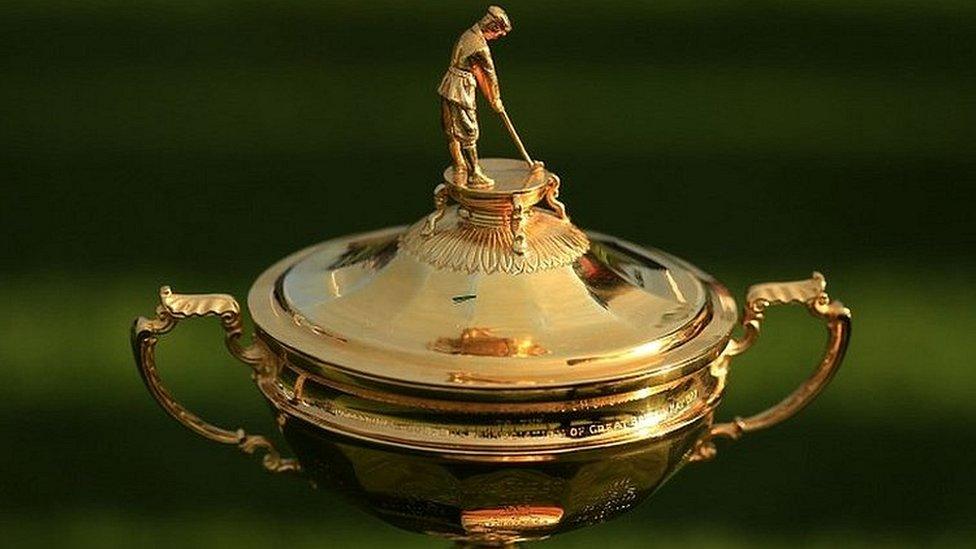
- Published2 October 2016
